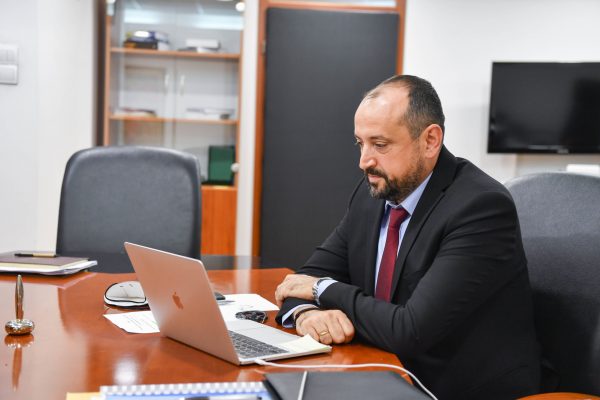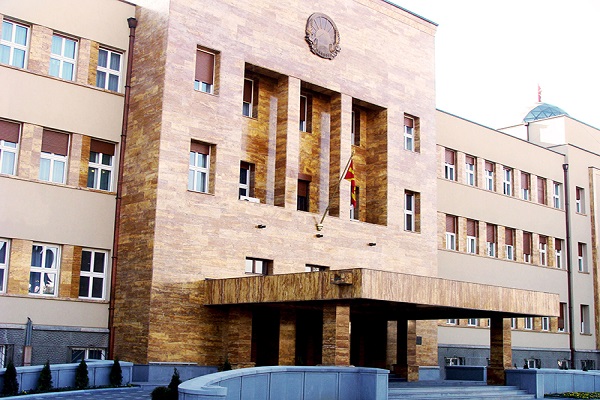The fifth set of economic measures, aiming to support citizens and the economy in managing the effects of the COVID-19 pandemic, will stand at around EUR 150 million. If stakeholders reach a consensus, the package should be finalized by the end of the week, Deputy Prime Minister for Economic Affairs Fatmir Bytyqi told reporters during a visit to Skopje-based company Rade Konchar TEP.
Stakeholders, he said, are still discussing package details and its exact worth, noting that salary assistance will be included in the fifth set of measures.
“Financial support for wages will not be unconditional. Certain criteria will have to be met, just like before. We’re discussing with labor unions, commerce chambers, etc. whether to
or replace current measures with interest-free loans. Over the course of the week we’ll decide together on the best course of action, having in mind that the economy is starting to recover,” Bytyqi said.
He stressed that distribution of payment vouchers was an ad-hoc measure implemented during the crisis period and targeted some 700,000 citizens, adding that the new set of measure entails scrapping the interest on old debts citizens owe public enterprises.
The upcoming stimulus package incorporates over 20 measures targeting vulnerable groups.
“New measures will be introduced in the future if the need arises. The government cares about citizens and has targeted all of them them via different sets of measures. We know that we’re not done dealing with COVID-19 and have prepared accordingly,” Bytyqi underlined.
There’s a possibility, he added, that financial support for wages will be replaced by a new measure offering salary support via a Development Bank credit line, but the criteria will most likely remain the same and everyone will get the assistance they need.
“These changes are in the spirit of development and restarting the economy, aiming to motivate companies to exhibit positive financial results in order to receive a certain amount of non-repayable aid. No one will be left behind. The number of companies requiring assistance has dropped by 30%. In April, 128,000 workers needed Mden 14,500 financial support, while in December only 60,000 workers and 11,000 companies made use of this measure and received on average Mden 15,800,” Bytyqi told reporters.
Moreover, he said that according to latest estimates, by December 31, 2020, a total of EUR 350,4 million budget funds were allocated for financial assistance as part of previous sets of measures, not including money spent in January 2021.
Three legal solutions, the Deputy PM noted, that were supposed to inject EUR 250 million into North Macedonia’s economy, are yet to be adopted, despite being delivered to Parliament over 2.5 months ago.

















